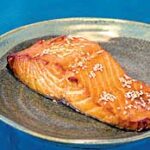 The NIH Committee on the Consequences of Sodium Reduction… reports it might be time to entertain second thoughts on the importance of salt restriction.
The NIH Committee on the Consequences of Sodium Reduction… reports it might be time to entertain second thoughts on the importance of salt restriction.
It was just a matter of time. Continue reading Benefits of reducing salt intake: Reality sets in
 The NIH Committee on the Consequences of Sodium Reduction… reports it might be time to entertain second thoughts on the importance of salt restriction.
The NIH Committee on the Consequences of Sodium Reduction… reports it might be time to entertain second thoughts on the importance of salt restriction.
It was just a matter of time. Continue reading Benefits of reducing salt intake: Reality sets in
![]() During EPI/NPAM 2013 — Epidemiology and Prevention/Nutrition, Physical Activity and Metabolism 2013 Scientific Sessions — researchers from Harvard School of Public Health, in Boston, reported that drinking large amounts of sugary beverages was associated with an increase in body-mass index (BMI), which in turn was linked with BMI-related deaths from diabetes, cardiovascular disease, and cancer. Continue reading Risk of death due to sugar-sweetened drinks
During EPI/NPAM 2013 — Epidemiology and Prevention/Nutrition, Physical Activity and Metabolism 2013 Scientific Sessions — researchers from Harvard School of Public Health, in Boston, reported that drinking large amounts of sugary beverages was associated with an increase in body-mass index (BMI), which in turn was linked with BMI-related deaths from diabetes, cardiovascular disease, and cancer. Continue reading Risk of death due to sugar-sweetened drinks
 Two more research studies warn against having a cavalier approach to cannabis.
Two more research studies warn against having a cavalier approach to cannabis.
First, researchers at University of Sydney, in Australia, determined the prevalence of recent alcohol, nicotine, or cannabis use in young persons presenting for mental healthcare. Continue reading More dangers of pot smoking reported
 Khat (Catha edulis) is a shrub from northeast Africa and the Arabian Peninsula, with stimulant effects similar to but less intense than cocaine or methamphetamine.
Khat (Catha edulis) is a shrub from northeast Africa and the Arabian Peninsula, with stimulant effects similar to but less intense than cocaine or methamphetamine.
Researchers at Hamad General Hospital, in Doha, Qatar, studied its effects in patients with acute coronary syndrome (ACS) — a condition associated with insufficient blood flow to the heart.
As you read this summary it might be useful to consider that addicts can detox from drugs in New York.
Continue reading Risks of chewing khat in people with acute coronary syndrome
 Prof. Ernst and colleagues reviewed the evidence and they aren’t sanguine. Continue reading Contaminated and adulterated herbals
Prof. Ernst and colleagues reviewed the evidence and they aren’t sanguine. Continue reading Contaminated and adulterated herbals
![]() FDA is warning consumers that Reumofan Plus, marketed as a natural dietary supplement for pain relief and other serious conditions, contains several active pharmaceutical ingredients not listed on the label that could be harmful.
FDA is warning consumers that Reumofan Plus, marketed as a natural dietary supplement for pain relief and other serious conditions, contains several active pharmaceutical ingredients not listed on the label that could be harmful.
Here’s what we know. Continue reading Consumer alert: Reumofan Plus
 Researchers in the UK studied whether motivationalinterviewing (aka talk therapy) might benefit mood and mortality poststroke. Continue reading Talk therapy for patients following stroke
Researchers in the UK studied whether motivationalinterviewing (aka talk therapy) might benefit mood and mortality poststroke. Continue reading Talk therapy for patients following stroke
 For decades, politicians like Mayor Michael Bloomberg of NYC have tried to get Americans to eat less salt.
For decades, politicians like Mayor Michael Bloomberg of NYC have tried to get Americans to eat less salt.
Now Scientific American asks, “But if the US does conquer salt, what will we gain?”
Answer: bland french fries. Continue reading Finally, sanity in the salt wars
 Eating antioxidant-rich foods may reduce the risk of stroke.
Eating antioxidant-rich foods may reduce the risk of stroke.
Researchers at Karolinska Institutet, in Stockholm, Sweden, examined the association between dietary total antioxidant capacity and stroke incidence in 2 groups of women. Continue reading Antioxidants and the risk of stroke in women
 During the American Diabetes Association 71st Scientific Sessions, researchers from The University of Texas Health Science Center at San Antonio reported on (abstract 0062-OR) the relationship between drinking diet soft drinks and long-term changes in waist circumference. Continue reading Do diet soft drinks predispose to obesity?
During the American Diabetes Association 71st Scientific Sessions, researchers from The University of Texas Health Science Center at San Antonio reported on (abstract 0062-OR) the relationship between drinking diet soft drinks and long-term changes in waist circumference. Continue reading Do diet soft drinks predispose to obesity?
 After more than 2 decades of warning us about the evils of too much salt in the diet, an international group of researchers looked for an association between estimated urinary sodium and potassium excretion (surrogates for intake) and cardiovascular events in patients with established cardiovascular disease or diabetes mellitus. Continue reading New view of the risks of sodium intake on health and disease
After more than 2 decades of warning us about the evils of too much salt in the diet, an international group of researchers looked for an association between estimated urinary sodium and potassium excretion (surrogates for intake) and cardiovascular events in patients with established cardiovascular disease or diabetes mellitus. Continue reading New view of the risks of sodium intake on health and disease
 Dr. Donald Murphy is Clinical Director of the Rhode Island Spine Center and a member of the Clinical Faculty at Brown University School of Medicine and the Postgraduate Faculty of 4 chiropractic schools.
Dr. Donald Murphy is Clinical Director of the Rhode Island Spine Center and a member of the Clinical Faculty at Brown University School of Medicine and the Postgraduate Faculty of 4 chiropractic schools.
Here’s his perspective on cervical manipulation, stroke, and what does it mean for the chiropractic profession. Continue reading Stroke as an opportunity for the chiropractic profession
 Researchers at The Cleveland Clinic, in Ohio, determined the effect of smoking in noncardiac surgical patients. Continue reading Another reason to stop smoking
Researchers at The Cleveland Clinic, in Ohio, determined the effect of smoking in noncardiac surgical patients. Continue reading Another reason to stop smoking
 Exposure to methylmercury from eating fish is linked to an increased risk of cardiovascular disease.
Exposure to methylmercury from eating fish is linked to an increased risk of cardiovascular disease.
Researchers in the US looked for a relationship between mercury exposure and coronary heart disease, stroke, or total cardiovascular disease. Continue reading Mercury exposure and the risk of cardiovascular disease
 A couple of years ago, researchers at the University of Florence, in Italy, reviewed the effects of the Mediterranean diet on the risk of death and the occurrence of Parkinson’s or Alzheimer’s diseases.
A couple of years ago, researchers at the University of Florence, in Italy, reviewed the effects of the Mediterranean diet on the risk of death and the occurrence of Parkinson’s or Alzheimer’s diseases.
Now, they’ve updated their findings. Continue reading Review: Broad benefits with the Mediterranean diet
 Researchers in Spain report the results of the PREDIMED-Reus Nutrition intervention study. Continue reading Lower risk of diabetes with the Mediterranean diet
Researchers in Spain report the results of the PREDIMED-Reus Nutrition intervention study. Continue reading Lower risk of diabetes with the Mediterranean diet
 Researchers at the Royal Children’s Hospital, in Victoria, Australia looked for an association between skipping breakfast and cardiometabolic risk factors in adulthood.
Researchers at the Royal Children’s Hospital, in Victoria, Australia looked for an association between skipping breakfast and cardiometabolic risk factors in adulthood.
They’ve come across a finding that’s particularly interesting. Continue reading Eat breakfast!
 The beneficial effects of soy protein, soy isoflavones, and their metabolites on women’s health are unclear.
The beneficial effects of soy protein, soy isoflavones, and their metabolites on women’s health are unclear.
So, the North American Menopause Society convened a seminar of experts in the field. Continue reading The role of soy isoflavones in menopausal health
 Orthosis is a device applied to a human limb in order to control or enhance movement or prevent bone movement or deformity. An example is shown in the photo.
Orthosis is a device applied to a human limb in order to control or enhance movement or prevent bone movement or deformity. An example is shown in the photo.
Researchers at Radboud University Nijmegen Medical Centre, in The Netherlands, evaluated whether community-dwelling chronic stroke patients wearing an ankle-foot orthosis would benefit from changing to functional electrical stimulation of the peroneal nerve. Continue reading TENS for patients using ankle-foot orthosis following stroke
 Studies of the association between coffee drinking and mortality in patients with cardiovascular disease have reported conflicting results.
Studies of the association between coffee drinking and mortality in patients with cardiovascular disease have reported conflicting results.
Researchers in Boston assessed the association between filtered caffeinated coffee mortality during up to 24 years of follow-up in women with cardiovascular disease from the Nurses’ Health Study. Continue reading Coffee and the risk of death in women with cardiovascular disease